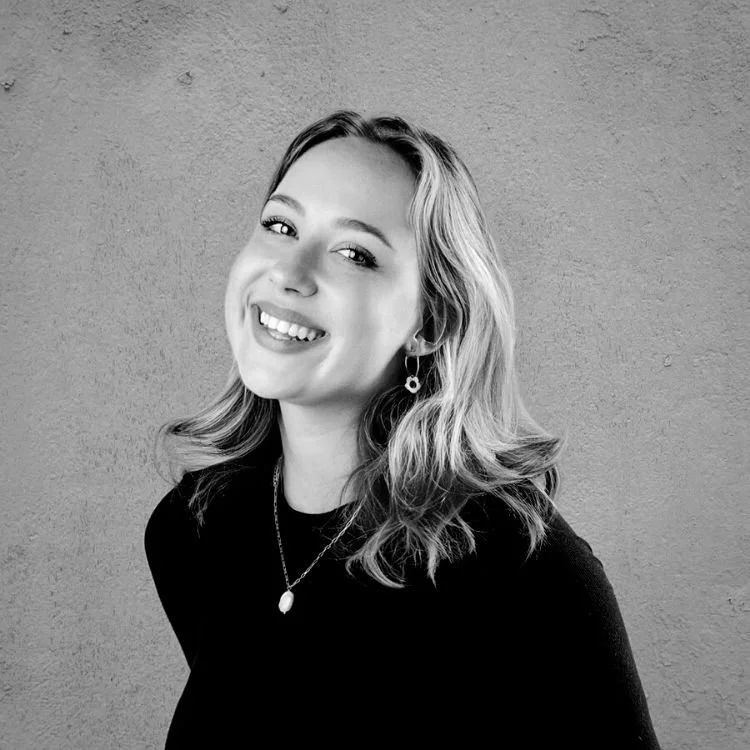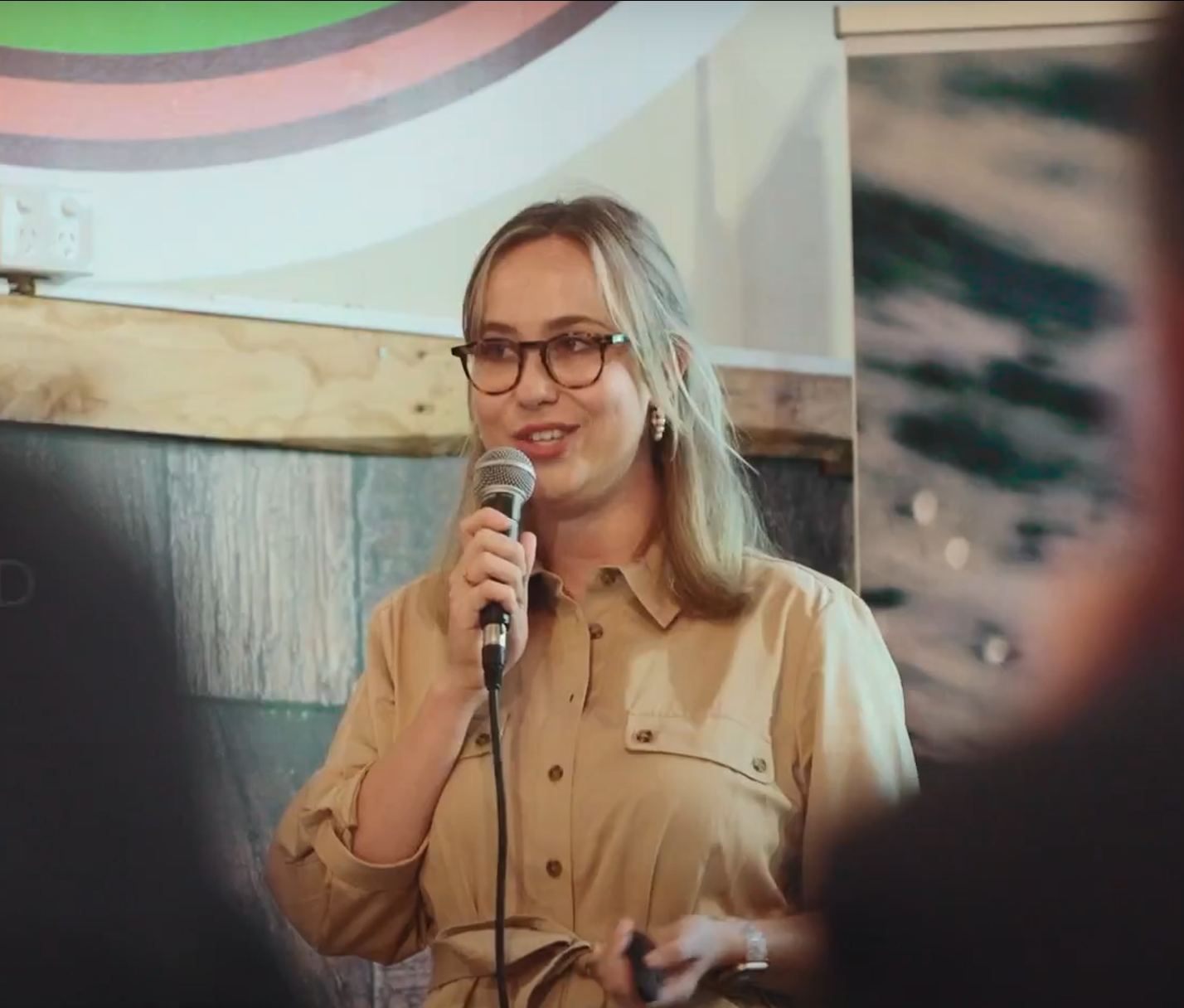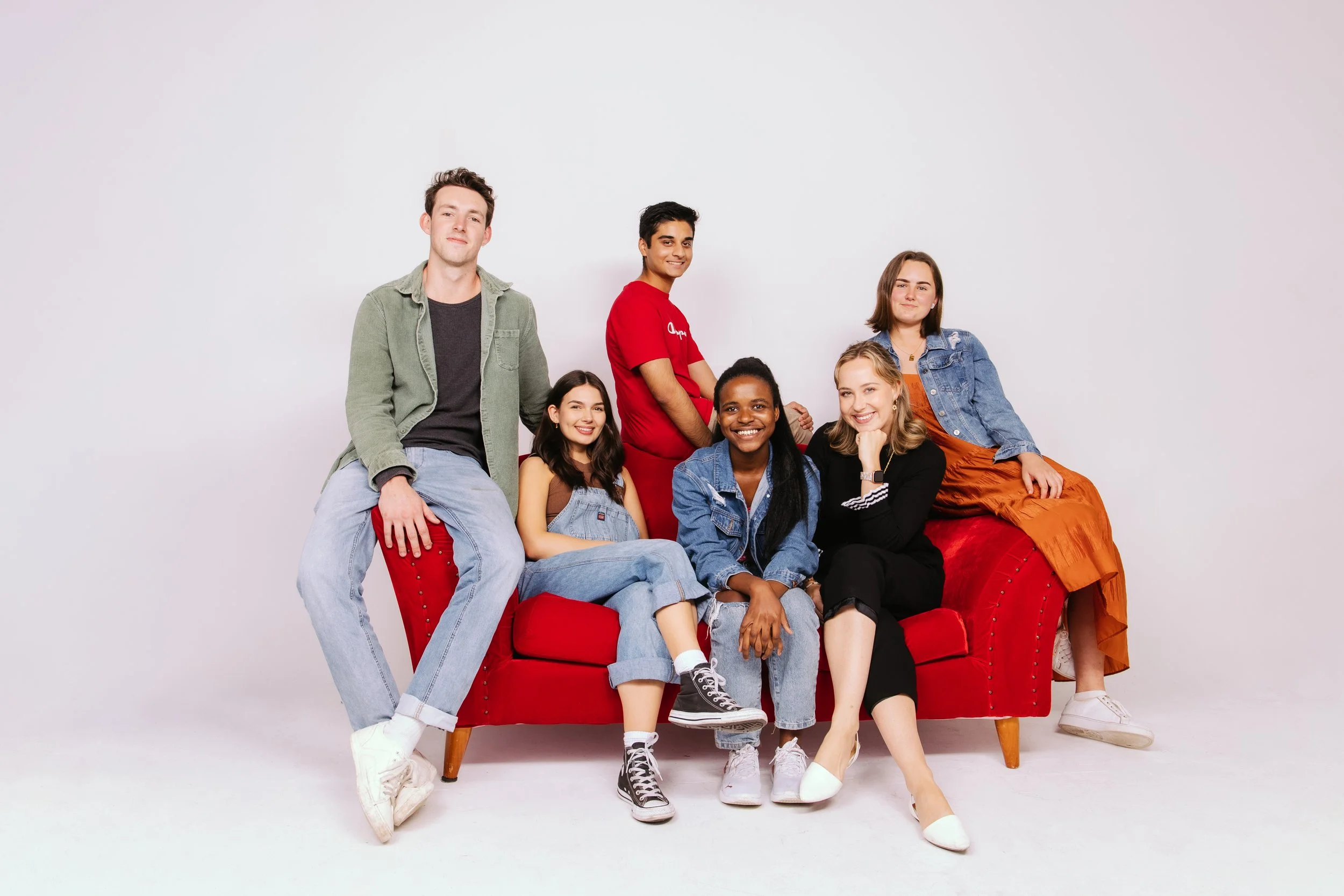Milly Bannister On Supporting At Risk Youth Through Mental Health Education
Milly Bannister is the Founder and Director of ALLKND, a not-for-profit organisation reducing the national youth suicide rate by teaching Australia's first digital, peer-to-peer mental health first aid program, at scale around the country.
She's a communications specialist and digital creator with a 160k+ community, a background and training in Journalism, Positive Psychology and Human Research. She's currently an ambassador for Microsoft Surface, Nexba, MG Motor and has worked with the likes of BMW, Sony, Olay, Amazon and Google.
Milly discusses peer to peer mental health first aid support for Australian youth, the advantages of accelerator programs and her advice for entrepreneurs managing burnout.
Highlights from the interview (listen to the podcast for full details)
[Tom Allen] - To start off, could share a little bit about your background and what led to your interest and passion in social enterprise and mental wellbeing?
[Milly Bannister] - I started university doing a degree in journalism and quickly knew that I wanted to do something a outside the traditional realms of news writing. I ended up more in the communications space, and after graduating overseas in California, I moved around to the East Coast and then back to the West Coast. As I grew up and faced these life lessons, I started reflecting on my own mental health journey, and I was really looking to start something.
At the time, I didn't know what it was called, but essentially it was a social enterprise or a not-for-profit organisation. These organisations are really focused on building community and conversations that are accessible and relatable to young people around mental health.
That was about five years ago now, and then because of COVID-19, I moved back home to Brisbane, Australia and spent two years essentially in lockdown, like we all did during that monotonous stretch of time. I figured out pretty quickly that I wanted this to be something a little more niche, specific, and with a narrowed scope. ALLKND was born at the beginning of lockdown, and it became a registered charity. I was lucky enough to work with yourself, Impact Boom and Griffith University through the Elevate+ Accelerator program. I finally got to understand what being a social enterprise meant and learned some key lessons around for-purpose business. That's where we're at now, and it's really exciting to be in this next chapter of scaling up something that was born so long ago, has evolved into something that looks very different today but fulfils and aligns with my values and passions.
As the founder of ALLKND, can you tell us a little bit more about this organisation, its purpose and goals for the next 12 months?
We are Australia's first digital peer-to-peer mental health first aid training program for young people. That might just seem like a whole bunch of words, but it's really exciting because traditionally, when we think of mental health first aid, it's essentially teaching people (usually adults) how to help other adults, parents, teachers and young people in their lives through early intervention. It involves suicide prevention, self-harm and panic attacks, and looking at the statistics in Australia around youth suicide, they're very alarming and are only getting worse. Suicide accounts for almost 40% of youth deaths between 15- and 17-year-olds, which is more than car accidents and accidental poisonings. It just absolutely should not be the case, and there's a whole other conversation we could have around the lack of funding, research and accessibility around seeing health professionals such as psychologists. That's not where our focus is, and there are wonderful organisations doing great work in that space which is slowly improving. For now, we're focused in the early intervention space on building movement by youth for youth.
Our idea was to look at the statistics and say, "research suggests that the majority of the time, young people are going to each other before they go to a trusted adult to seek support and connection around mental health struggles." We asked who is actually teaching them what to do in those situations? We have R U OK day where we're all encouraged to check in on our mates, but what happens when they say, "actually I'm not okay." Where is the education so that we're having these supported and informed conversations? Currently there's one other organisation teaching how to help other youth, but they require in person facilitators which is expensive and inaccessible in some locations. There are barriers presented that we really wanted to tear down. We just want to make it as accessible and efficient as possible to bring life-saving education to these young people around Australia and empower them with the right skills and support seeking behaviours, attitudes and beliefs. This education includes suicide prevention, responding to self-harm, and panic attacks so that they can actually help each other out safely when they do go to each other, because they already are. It makes sense when you think about your days in high school, what it was like confiding in someone. We want them to know what to do for their own sake, but also for the sake of those who need that support.
Are there any gaps in Australia you see that offer an opportunity to better support the mental wellbeing of youth?
There really isn't a whole lot of education happening in schools. I was in high school about eight years ago, and since then (despite such a long period of time and so many and conversations happening around mental health), there really going on in schools to educate our young people. There are these mass herd mentality episodes around things like self-harm in elite private girl schools in Brisbane, for example. It's an epidemic in itself within the walls of that school. Unfortunately, in government type institutions, there's this massive misunderstanding that by talking about suicide we're putting ideas into people's heads, encouraging them or changing their behaviour. Research has proven very effectively that this is not the case.
It's almost like they're frightened or scared to talk about these things, let alone provide them with a training course such as ours because of this backwards belief and attitudes around the idea of talking about these things, which is just so unfortunate. We have to do a lot of education with our product when we talk to schools, but unfortunately, it's so hard. It's really hard to the point that we've actually opened up our mental health first-aid peer-to-peer digital training to individuals, so that when young people who are enrolled in high school find us on social media, they can say, "this would be great to have in our life skills class in school one Tuesday afternoon out of the year to get everyone educated and informed at the same time." It's cost-effective, accessible and digital. You can do it anywhere in Australia. But the schools are saying no.
We don't want that to be a barrier for a young person who wants to be a better mate, upskill, be informed and take it upon themselves to actually be the person that people feel safe talking to know how to foster the best environment and provide the support that someone needs.
That's what it looks like at the moment. I think COVID-19 has definitely accelerated the conversation around mental health, especially regarding the developmental psychology of young people going through prolonged collective trauma and uncertainty. If we think about our own experiences as business owners, parents or colleagues and how stressful it was during that time, imagine being fifteen and having all of these psychological changes going on and the stress of being a young person in such an uncertain environment when there's already so much going on in your brain. It just cultivates a really tricky space for one's mind to be in.
What practical advice would you give to other founders or people working in the social impact space to help them manage their mental health and burnout?
I honestly think that the past two years have really tested us all, and I almost feel as though we're already burnt out and are slowly building our resilience and strength back up after such a drawn out and uncertain time.
I think I wouldn't blame anyone who felt even at the start of a fresh year exhausted. I think that was a pretty common conversation going around in Q1 when we were saying, "we've got four quarters ahead of us, yet we're already feeling exhausted and tired". I wouldn't blame anyone who felt that way. I think as the year has progressed, we've caught onto some momentum and excitement around being free and past what happened and being able to travel. I think dropping the expectation of saying, "I can avoid burnout this year," would be a practical idea to keep in the back of your mind. In saying that though, I think there are some people who are doing really well, have re-evaluated their priorities and boundaries coming out of such a tricky time, which is great. That's probably all I would encourage people to do, give yourself a lot of grace and go gently with your expectations around burnout. Set those boundaries, priorities and really stick to them and reflect on how you're going with them. In terms of how well you're sticking to them, for example, I decided this year that I would take Wednesdays off as a personal day and try and do half-day Fridays. Things come up, it's launch week for us this week, and then I got sick. Life happens! For the most part, it's honestly saved my sanity and helped me prevent physical exhaustion as well. I get very tired easily, so knowing that I have Wednesdays off helps (and obviously this isn't possible for everyone).
Finding those pockets of rest and scheduling them in has been something that I have found has worked for me. Consistently asking, "how can I make my work-life balance better practically," is essential. It’s not always possible, only in an ideal world of course, but we're never living in an ideal world. We're always living in a reality where life happens consistently and we think we're going to have a tidy week that happens as per our plan, but it really never does. Making sure that you've got those things scheduled into your calendar already so that you can try and stick to them is crucial. But also, you're human, you're already exhausted from such a long period of time where we had no idea what was going on and things were really hard.
Just doing the best you can and being gentle with how you go about it is important.
What key lessons or insights emerged from your experience with the Elevate+ Accelerator program that might be valuable to purpose led entrepreneurs seeking to create impact?
I would honestly say that getting in a room with other founders who were all going through quite similar challenges and were almost in the same boat in terms of starting something that they were passionate about and were facing obstacles was great. (It) really brought me out of this lull or rut that I was going through mid-last year. That's probably the biggest takeaway. The content was amazing, having guest speakers going through from start to finish in chronological order with the content made sense from start in finish in terms of setting up a social enterprise all the way through to pitching a finished product. That was just incredible, and I'm still combing through everything that we learnt in such a short period of time as we all worked to build up our own social enterprise. Honestly, the best part and key takeaway would be getting in the same room as people going through the same thing as you.
I cannot explain how positive that impact was on me. After that experience, I would always recommend people seek out industry mentors where they can and meet other small business owners or social enterprise founders who can take you out of your own head space and mental prison of feeling stuck and isolated.
I know this was something I said to you the first day that we met; you asked, "why do you want to join Elevate+?” I said, "I'm just really lonely and isolated. I need to be in the same room as other founders.” This is because I didn't go to ‘founder’ or business school. I don't know if my experiences and emotions around what is going on and the obstacles I'm facing are valid or not. Just feeling validated, heard, seen and supported was absolutely life changing for me at that point, and it has stayed with me to this day. When we launched, I had at least two or three members of our cohort reach out and share my content as well, and we still keep in touch and support each other. It's just a wonderful thing; to have those people around who also understand what you're going through.
What inspiring projects and initiatives do you believe are creating really positive social change?
On the top of my mind would be a social enterprise who work out of the same co-working space as I do in Sydney called Who Gives A Crap. If you're in the space, there will be no doubt you know who they are. Their message and marketing has really cut through and provided a gold standard example of what it means to be a social enterprise. For those who don't know, their product is toilet paper (and it's good toilet paper too). Their marketing is on point, but 50% of their profits are donated to help build toilets in countries and areas where that would previously have not been possible. They're B-Corporation certified, eco-conscious and doing all the right things, but their passion really comes through their communication strategies including social media and their website. I have purchased their toilet paper, and every time I drop into the bathrooms at the co-working space, there's piles and piles of it. It's just wonderful to see. They're Australian and a local brand doing such incredible work.
To finish off then, what books or resources would you recommend to our listeners?
I think books are just so helpful for founders. At the moment, I'm reading a book from a friend of mine. Tim Duggan is a co-founder of Junkee media, and he's a bit of a creative icon and legend in the communications/media space. Recently, I went to his second book's launch. He published his first book during COVID called Cult Status: How to Build a Business People Adore, where he touched on some really special for profit enterprises. He also interviewed and gave a shout out to Who Gives A Crap, but he's just gone on to release another book because he's just brilliant and has so much stuff to share with the world. It's called Killer Thinking, and KILLER is actually an acronym. The books teaches us from start to finish how to turn good ideas into brilliant ones. It's had positive acclaim as well, and so with those two I books he's done so much good stuff in his career. But to actually pull this information out of his brain and put that into a repeatable process is really helpful for people like us, even as founders who already have a product and message. He introduces concepts like brainstorming sessions don't work. He hates brainstorming sessions, especially on Zoom. He has another idea for it you can use that doesn't involve a whiteboard to get great ideas out of people.
It's just stuff I never really would've thought of because I don't have enough experience and haven't lived through the career that he has. There's so many ways people do things in the business world. I love having a blueprint, these books contain his. I definitely would recommend Tim Duggan's books.
Another book I'd recommend on the mental health side of things is from Sarah Wilson, an Australian author as well. You might know her from I Quit Sugar. She founded that a while ago, but she wrote a book during COVID-19 called First, We Make The Beast Beautiful: A New Story About Anxiety. She is so whip smart and intelligent, and she somehow wrote an entire book filled with research in a really digestible, accessible way and nailed the crux of what it's like to live with anxiety. She brought that into a really articulate long form (almost essay) about what it means to have anxiety, how to live with it, feel better and do better. If you are someone who does live alongside anxiety, I'd definitely give it a read. It was really validating and interesting. It included a lot of really incredible anecdotes, I have bookmarked nearly every single page of it, and likewise with Tim Duggan's books.
Initiatives, resources and people mentioned on the podcast
Recommended books
Cult Status: How to Build a Business People Adore by Tim Duggan
Killer Thinking: How to Turn Good Ideas into Brilliant Ones by Tim Duggan
First, We Make the Beast Beautiful: A New Story About Anxiety by Sarah Wilson







